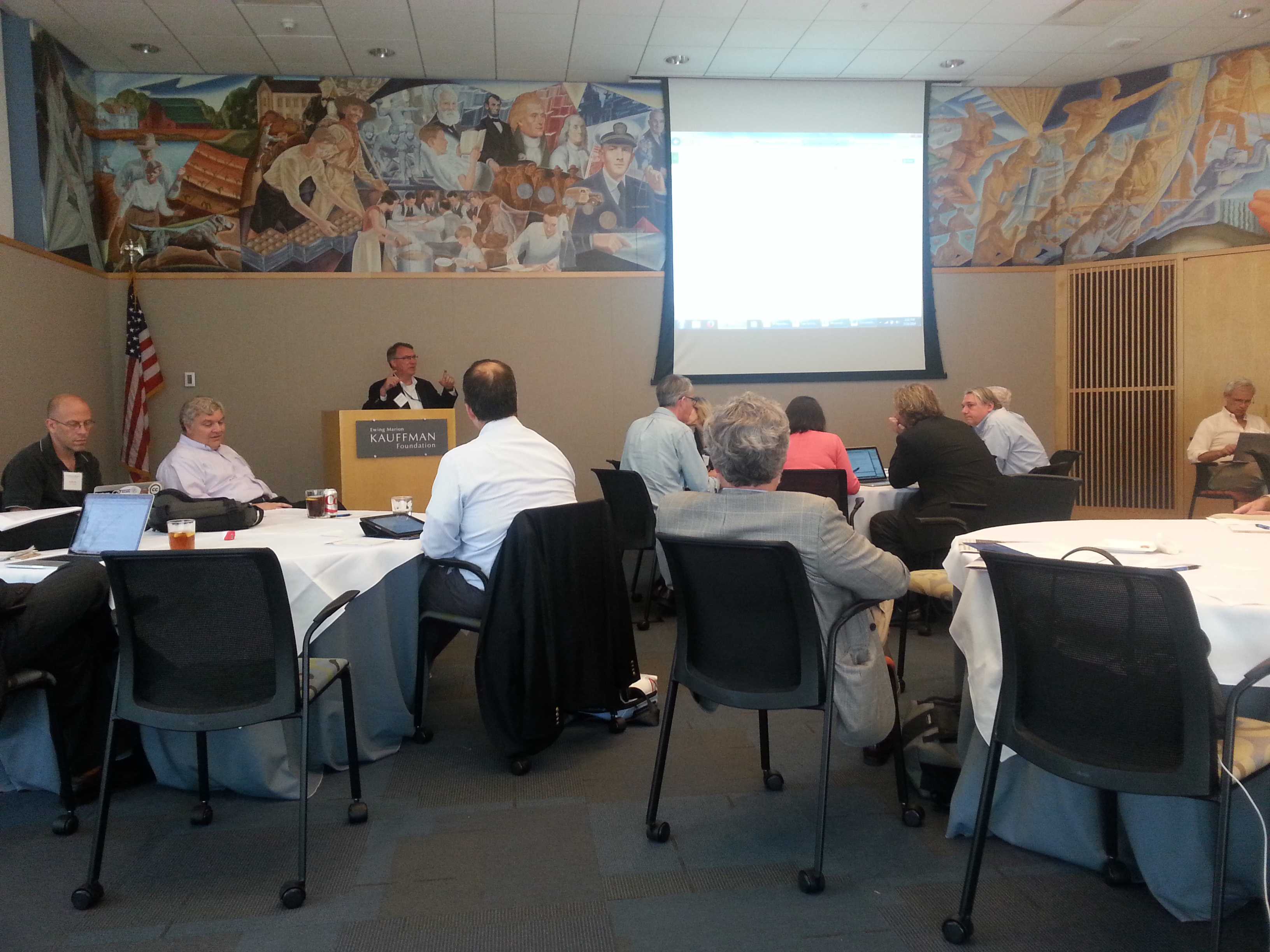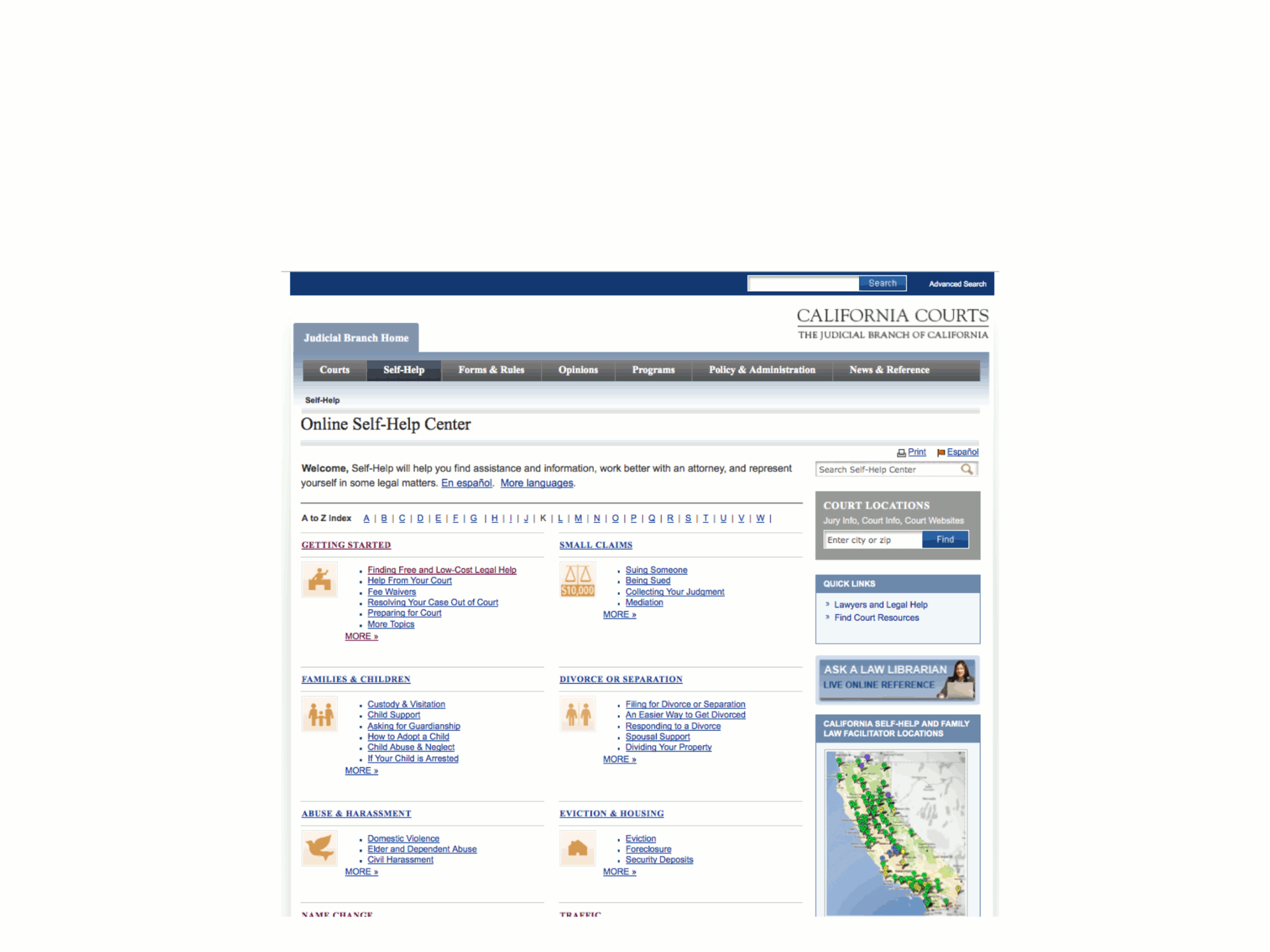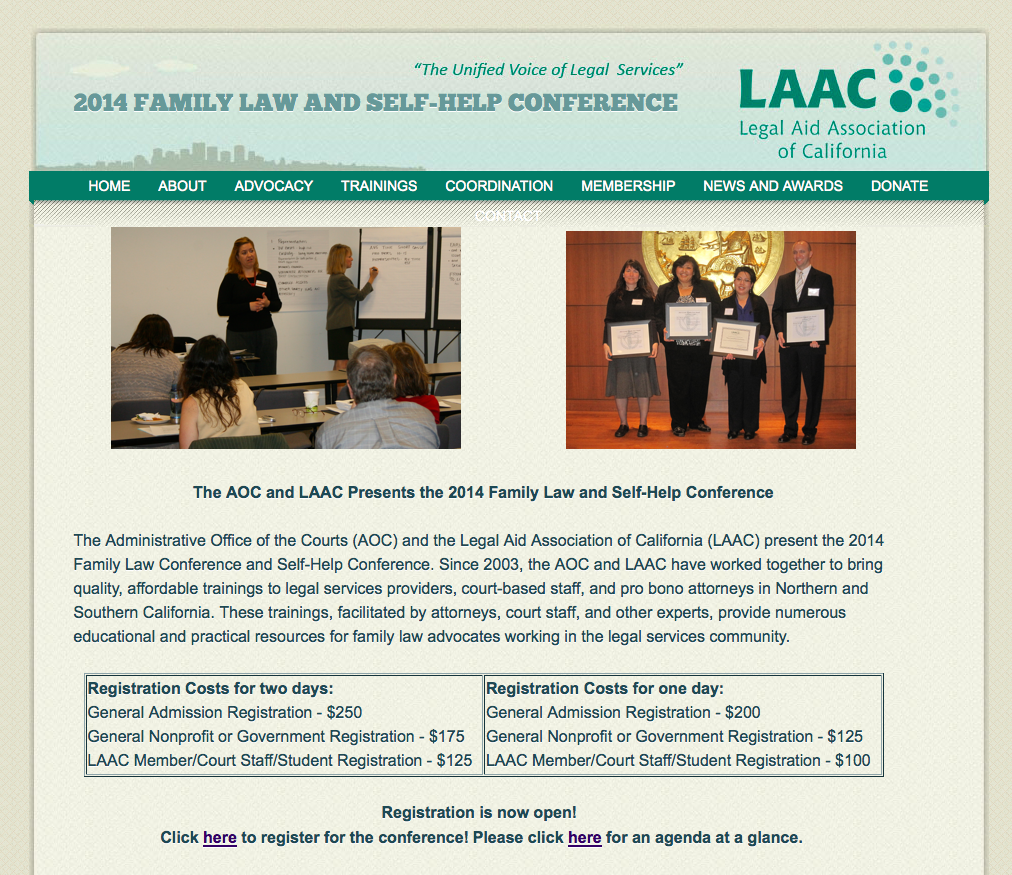Last month, I was fortunate to attend the Law Schools, Technology & Access to Justice conference in Kansas City, sponsored by the Kauffman Foundation, the University of Missouri Kansas City Law School, and the University of Massachusetts School of Law. The conference was an open forum of law school leaders & access to justice experts about what the role of law schools should be in this area, and what kind of projects could be launched to spark change.


The conference was a great chance to meet other people who are innovating in how law schools are training students in coding, design & project management — like Dan Jackson of Northeastern’s NuLawLab & Judson Mitchell of Loyola College of Law’s Litigation & Technology Clinic. Both of these law schools have active programs in which students are themselves designing & building access to justice projects. They can be prototypes for other law schools interested in building legal tech & experiential programs for their students.
During the conference, there were general presentations that set the agenda of why law schools are (and if not, should be) interested in encouraging entrepreneurial law students and pushing forward the agenda of accessible & open legal services. Then there were break-out sessions, in which smaller groups of participants brainstormed new initiatives for:
- How law schools can train their students in legal technology, and to be entrepreneurial in providing legal services? What new business models & organizations could allow for better legal service delivery?
- How can we make legal services more accessible through technology tools? What can we build to improve the efficacy of law school clinics, legal service incubators, and legal aid groups?
- How can we improve non-lawyers’ understanding of the services that are available to them, and their engagement with them?
These brainstorm sessions led to a rich list of concepts & agenda points. The conference concluded with a session in which all the participants came back together to hone these agenda points into a common set of points that everyone could agree on — about how to improve access to legal services, and advancing law schools’ role in access to justice.
And now, several participants of the conference have launched an online platform (for now, restricted to other participants) to allow for continued collaboration on making the concepts come to life as real projects. I hope to take part in several of these cross-law school projects.
One that is relatively low-hanging is an online Legal Tech Toolbox platform, for legal service providers to use as they try to navigate the world of tech to improve their org’s efficiency & service-deliver. The toolbox could have an emphasis on open-source software, or that which provides low-cost versions for legal aid groups and clinics, to ensure the organizations aren’t paying exorbitant fees for software that is hard to customize or update. It could also provide a user-friendly guide to providers who may not be the most tech-savvy.
I’m also interested in collaborating on a Crowdsourced Legal Price Database, modeled after some health services price index initiative. A university could host this site, which invites users to enter how much they paid for a certain legal service. The Bay Area NPR-affiliate KQED is currently running such a model for crowdsourcing mammogram prices, inviting listeners to enter the amount they paid for the medical service, and then letting other visitors search the database to find prices for their area. The tech requirements for this kind of crowdsourcing initiative are pretty minimal, and it can lead to more transparency around legal pricing — which appears to be one of the major blocks when it comes to why normal people avoid addressing their legal problems, or have such confusing & unsatisfactory legal experiences.
The conference produced a much longer list of legal service tools to be built, policy initiatives to be pursued, and law school curriculum to be developed. I’m excited to see what cross-country initiatives can take off from a group of leaders who are all interested in using technology & innovative approaches to improve the law school experience & make legal services more accessible.



